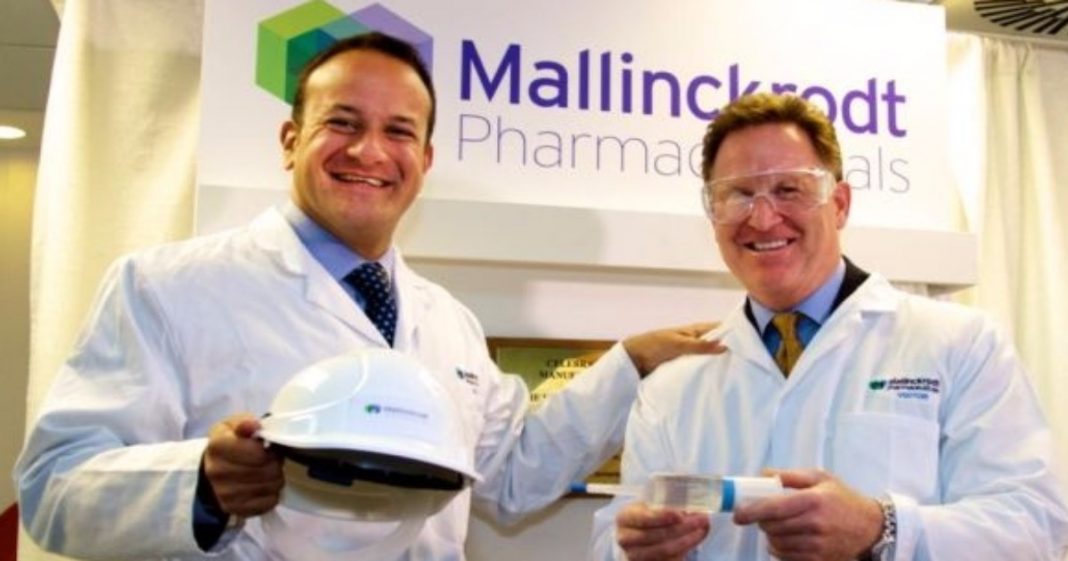For going on three years now, Mallinckrodt Pharmaceuticals has been making a very nice chunk of change from the federal Medicare program – more than half a billion dollars, in fact. This sizable revenue comes from sales of a drug that is prescribed by fewer than one in a hundred physicians, has never been through clinical trials, and is far more expensive and unreliable than other readily available alternatives.
The name of the drug is Acthar, short for “adrenocorticotropic hormone” (ACTH). It is made from corticotropin, which is taken from the pituitary glands of pigs. In medicine, Acthar is used for treating epileptic spasms in infants as well as symptoms of multiple sclerosis in adults. It is also prescribed for certain types of arthritis, various skin conditions, inflammation of the eye, a respiratory disorder known as sarcoidosis, and swelling due to fluid retention (edema). Currently, there are only about 9,000 patients who use Acthar, which is generally prescribed only when other medications have failed.
Before Mallinckrodt got hold of the rights in 2014, the annual cost for Acthar was between $1,600 and $1,700 a year. Today, prescriptions for Acthar cost $38,000 a year. Even though it is prescribed by less than one percent of doctors in the U.S., the federal Medicare program coughed up $504 million for the treatment in 2015 – almost twice as much as it did in 2013.
Haven’t we seen this before?
What’s going on is the same old shenanigans we saw with the contemptible lowlife “Pharma Bro” Martin Shkreli back in 2015. It’s a new investment scheme: buy up old “orphan drugs” (medications used to treat a very small patient population), then jack up the price to astronomical levels. However, what makes the case of Acthar particularly egregious is that there are no studies demonstrating that it is any better than alternatives costing a fraction of the grossly inflated price Mallinckrodt is charging.
This has raised serious questions from Dr. Dennis Bourdette, who chairs the neurology department at Oregon Health and Science University’s School of Medicine. Speaking with Business Insider, Dr. Bourdette pointed out that “There have never been any designed controlled trials or any basis that show that it’s superior to synthetic steroids.”
He asks: “Who are these people and why are they prescribing this when we have synthetic steroids that work?”
This is where it gets even more interesting: a significant number of the very few doctors (less than 1%) who prescribe Acthar have been paid “speaker fees” by Mallinckrodt. Furthermore, it turns out that almost half of all Acthar sales are to the Medicare program. However, because this drug has been around for 65 years, it has never undergone the clinical trials required by the FDA for new medications today. Currently, Mallinckrodt is conducting four of its own “studies” on the effectiveness of Atchar – but only one draws any comparisons to cheaper alternatives. Of course the fact that the studies are been funded by Mallinckrodt makes them suspect, which Bourdette says are not scientific, but rather “marketing ploys.”
If there is a silver lining to all of this, it is that Mallinckrodt and other greed-driven pharmaceutical companies may have finally overreached themselves. Increasingly, these predatory pricing schemes are drawing the scrutiny of lawmakers. Because of this, investors who have been enthusiastically buying up shares in these companies are starting to dump them in droves.
Hopefully, this means that a day of reckoning is coming for Big Pharma players who have been making obscene profits at the expense of patients as well as taxpayers.




